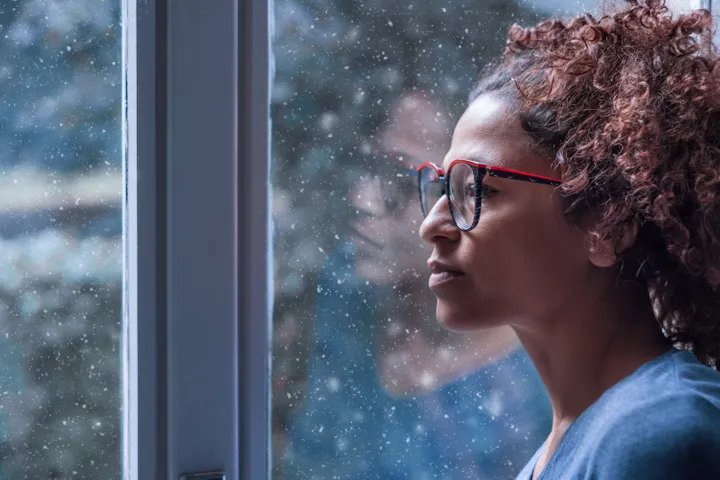June Matthews was 19 when she met her dream life partner. He was perfect, their families were close and, early on, the couple talked about having their own kids. Then, three years into the relationship, he ended it.
“He was my first love,” she says. “It was quite a huge shock because we had even gone into the doctors to discuss the possibilities of starting a family – finding ways in which we could actually have children without bringing so much pain into their lives.”
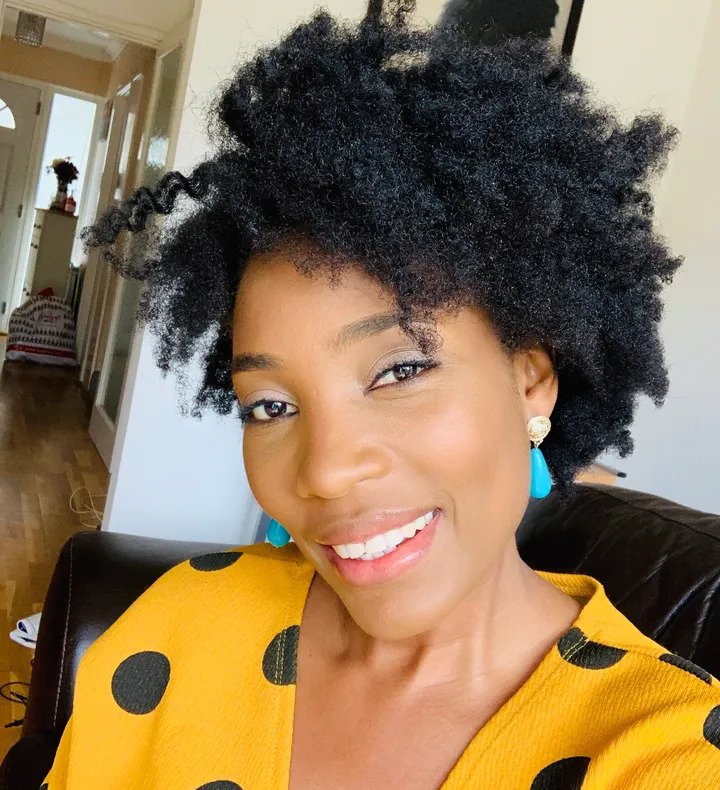
June Matthews
It wasn’t the first time she’d been rejected. When Matthews started dating as a teen, she struggled to form long-term relationships because every time she told a boyfriend she had sickle cell, they either found out they also had the trait or she would end up being ghosted.
Sickle cell disease is caused by a gene that affects how red blood cells develop. Symptoms begin showing from early childhood and while the disease is lifelong and requires medication, many patients lead relatively normal lives. Others, like Matthews, experience ‘sickle cell crises’ – painful episodes that can last for several days – and may also need to be hospitalised.
Those with ‘sickle cell trait’ carry the gene that causes the disease without actually developing it, but if a partner is a carrier, their children are at risk of having the disease. One in 76 babies born each year in the UK have the trait, while 15,000 people have sickle cell disease. It is most commonly detected during pregnancy screening – or soon after birth with a heel-prick test.
Matthews was one when she was diagnosed. Now 37, she will soon undergo a hip replacement operation due to complications from avascular necrosis – the death of bone tissue due to a lack of blood supply – a debilitating condition that is one of the possible side effects of sickle cell anaemia.
“Sickle cell can kill,” she tells HuffPost UK. “You can get organ damage, a stroke, heart failure – so many horrible things. I’m living with a lot of pain.”
But Matthews nurses a deeper-seated pain beyond her physical condition: the agony of wanting children and not being able to realise her dream.
Not only is trying to conceive difficult to balance with treatement, but pregnancy with sickle cell disease is extremely high risk, leading to potential complications ranging from still birth and miscarriage to pre-eclampsia and maternal death.
Black mothers are already five times more likely to die as a result of complications in pregnancy than white women. And with sickle cell disease more prevalent among Black people, it is a major issue in the Black community when it comes to dating and starting a family.
Vauxhall MP Florence Eshalomi, 39, found out she carried the sickle cell trait while pregnant with her son. The mother of two inherited it from her mother who lived with the disease and eventually succumbed to it. Though Eshalomi’s son doesn’t have the trait, her daughter does.
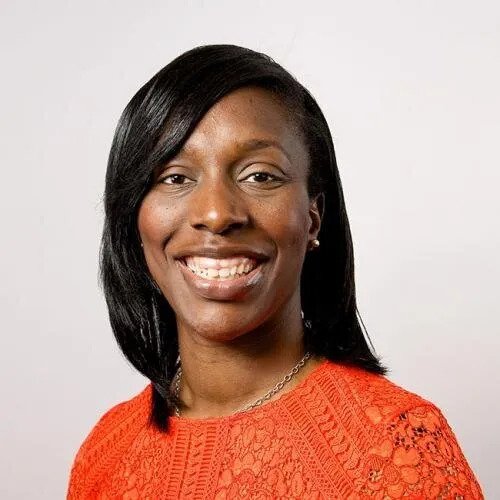
Florence Eshalomi MP.
“It was a shock to me,” she tells HuffPost UK. “My mum was one of 12 kids, same mum and dad, and the only child with the disease. Some of my aunts have the trait; the disease doesn’t discriminate. It doesn’t pick who it affects.”
Despite her mum having sickle cell, it hadn’t occurred to Eshalomi to get checked. “When I found out and asked my mum why she didn’t tell me, she said, ‘you’re fine, you’re healthy, you’re healed in Jesus’ name.’ I think she didn’t want to worry me and my sisters to put this fear in my head that you can’t get married and have kids.”
Doctors insisted Eshalomi’s husband also get checked. “It was almost a sigh of relief when we got the letter back to say it was clear, because in my head I knew that there’s no way we could pass on the disease to [our daughter]. But I knew that because I’ve got the trait, she could inherit that. Which she did.“
Both Charlene Taylor, 27, and her partner have the sickle cell trait. But while she had always known she was a carrier, her partner only found out he was too when she became pregnant with their first child, who was born in 2017.
“In the Black community, it is common for people not to enquire about their family health history as they should,” says Taylor, a stay-at-home mum from south London. “So it’s difficult to pick up whether this gene runs in your family or not. People just go about their lives until they meet someone with it or you get tested – and you’ve got it. Then it just hits you.”
When the couple went along to a prenatal screening to discuss her partner’s status, Taylor was shocked to hear the nurse talk through abortion as a solution. “I held my composure because I know she was trying to just be helpful, but I didn’t feel helped… who are you to say the child shouldn’t be born and shouldn’t have a chance?”
“I had to explain to her that I was told I couldn’t have kids; so to be then told I should abort because the child could have an illness that can actually be managed. I said: I’ll take my chances because I don’t know when or if I will have another one.”
“There’s always fear surrounding having future kids… a one in four chance of having a child with sickle cell is a big chance.”
– CHARLENE TAYLOR
Their son Travis was born without sickle cell, which Taylor describes as a “relief”. A year later, she fell pregnant with twins. “Reality set in when we found out they had sickle cell,” she says. “In my mind I was thinking this could’ve been avoided if I didn’t have them. At the same time, I love them; they’re my kids. I just thought, it is what it is.”
Taylor now attends quarterly hospital appointments with twins Chris and Kevin. The 1-year olds need to drink more water than the average child to help blood-flow and avoid clotting. But aside from the need for twice-a-day medication, she says they are normal happy babies. “They crawl, they fight and everything any other normal baby would do. Nothing has stunted them.”
Nor has she ruled out having more children. “There’s always fear. One in four is a big chance [but] I wouldn’t say no to having another child because they may have sickle cell.” But she hasn’t told the whole of her family about the twins’ condition, because she doesn’t want any stigma attached to them. “They can still do anything that any other kid can.”
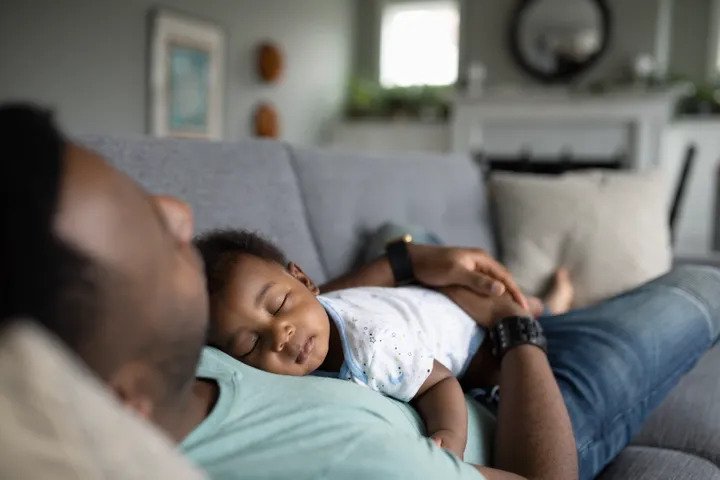
HERO IMAGES VIA GETTY IMAGES
Michael Ogun, who has asked to w mentors those living with sickle cell disease, wants to fight that stigma.
Diagnosed at birth with Haemoglobin SC– a milder form of sickle cell – the 28-year-old Londoner leads a relatively normal life, seeing a haematologist just once a year and living with what he describes as “occasional pain”.
But when he was dating his future wife, he discovered she had beta thalassemia trait, a genetic blood disorder that can cause anaemia. “That combined with my sickle gene can pose really big problems for a child,” he says.
Though it wasn’t a deal-breaker for them, throughout his wife’s pregnancy, the couple agonised over whether their future child would inherit one of their blood disorders. “It was a combination of worry, anxiety and a degree of guilt,” says Ogun. “As much as I talk about things being relatively normal for me, I get crises, I have mild symptoms that stay with me; it’s still apparent in my day to day life. I am experiencing this – so why would I then bring another child into the world to then experience the same thing.”
In the event, their son, now three, was born healthy and the couple are hoping to extend their family, applying through the NHS for pre-implantation genetic diagnosis and IVF, a pioneering method aimed at parents with an inherited condition that could be passed on to a child.
If their application isn’t successful they will try to conceive naturally and hope for the best, says Ogun. They are also open to adoption – even of a child with sickle cell. “I can at least relate in a way that only someone with sickle cell can and try and be a positive impact on their life.”
“One man once said after he disclosed his condition to his partner – he never heard from her again.”
– ANONYMOUS
Ogun has counselled a lot of people who have been ghosted by prospective partners. “One man said after he disclosed his condition to his partner, he never heard from her again,” he tells HuffPost UK, adding that the problem is one of perception. “I think people feel that you’re almost like a ticking time bomb for sickness or you’ll be a burden; or that you’re not normal, in a sense, or they’ll equate it with disability,” he says. “The problem with that is sickle cell is a spectrum disorder, which impacts people at varying severities.”
Somewhere on that spectrum is Adeola, who speaks to HuffPost UK from her hospital bed after being admitted with another sickle cell crisis. Following a string of bad reactions to transfusions, it is now unsafe for her to receive blood except in life-threatening circumstances.
“My body was attacking itself, killing all of my red blood cells and the blood cells that got transfused last September,” the 26-year-old teacher, who did not wish to give her surname, explains. “As a result, I am in and out of hospital.”
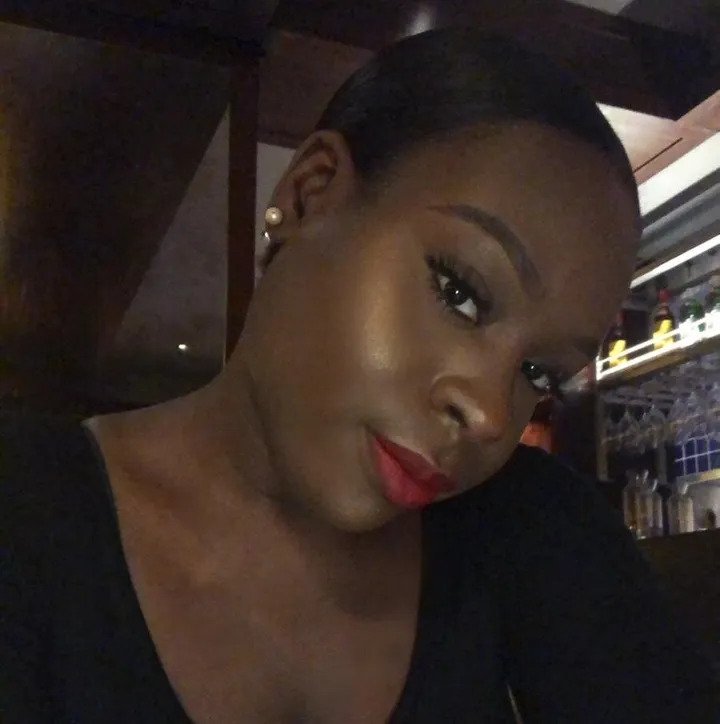
ADEOLA
Transfusions are a common necessity for pregnant mothers with sickle cell disease – just one worry that nags at Adeola, who wants to start a family someday. “Obviously you’re carrying for two when you’re pregnant, so you need more blood in your body, I’ve known people who have gone into comas after they’ve given birth. Most of the time they induce us earlier than usual, too.”
Last year, she dated a guy whose behaviour abruptly changed once she disclosed her illness. “As soon as I said I had sickle cell, he started moving funny,” she says.
“I didn’t like the way he handled it; it was a bit childish but that’s on him. I’m not gonna take it as something against me because a lot of people aren’t educated about it anyway,” she adds. Nor is she overly concerned about having a child with the trait, as someone who lives with – and manages – the full illness.
Anne Welsh who has written a book about her own experience of sickle cell disease, entitled Pain-Less, says: “It’s very difficult for a person who lives with sickle cell to fall in love if you want to submit to your feelings for someone you know carries the trait or people who may not carry the trait but need to do the test to confirm, they might just have it. And now you’re deeply in love.”
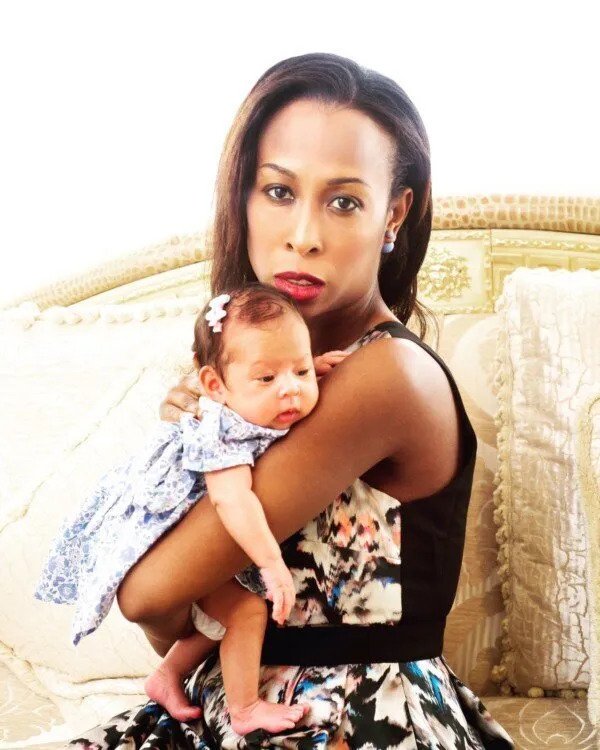
ANNE WELSH
Welsh, a 39-year-old mother of two, was diagnosed when she was just three and in addition to the intense pain she endured as a child, she felt ostracised throughout her adolescence and early adulthood – something that severely impacted her confidence when it came to dating.
“Once I told people I had sickle cell, I was disregarded,” she tells HuffPost UK.
“It can hit in a such a way where you are in hospital for months; forgotten to society, forgotten to a lot of people.”
– ANNE WELSH
“Some were interested but the fear was at the back of their mind. All I could see was I was this person who was not fit for anybody to date. A lot of men wouldn’t want to date me as soon as I say I have sickle cell or when they saw me having a crisis. It can hit in a such a way where you are in hospital for months; forgotten to society, to a lot of people.”
Welsh went on to find love and is married with two children, though the journey was precarious. During her first pregnancy, she was hospitalised for four weeks before giving birth to her son five weeks early.
Throughout her second pregnancy, she experienced heightened pain, itchiness and jaundice – and was eventually diagnosed with liver problems. Yet, she is determined to live life to the full. “Living with sickle cell can disadvantage you so much. I’d say all the time: ‘Why can’t this illness just let me be me?’”
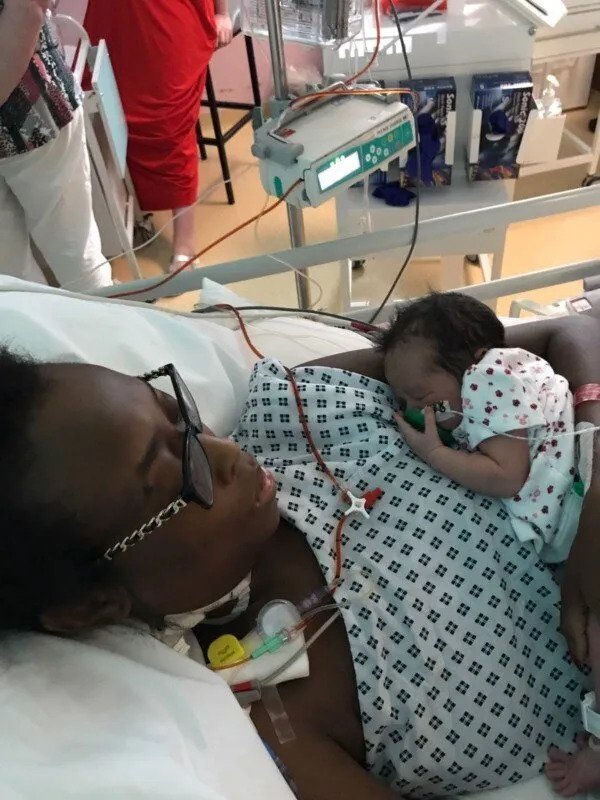
Anne Welsh in hospital.
Welsh, whose husband is white, believes Black people are more stigmatised for sickle cell within the Black community than outside it. “To say I wasn’t more comfortable because my husband was white would be a lie. He didn’t make sickle cell a big deal,” she says. “Black people have seen people suffering from the disease first hand; we don’t want to be affiliated. Some of the Black boys I grew up with would say they wish me luck finding someone. I felt like a leftover rotten egg, the one no one’s gonna touch.”
Acknowledging sickle sell as a very live issue, Africlick, a new dating app for professionals and creatives of African and Caribbean heritage, has actually factored it into its matching algorithm.
Sign up to the app and it will ask you for your genotype (with an option to say ‘I don’t know’). “We don’t show your genotype on your profile because that’s personal information,” says founder Dayo Akinrinade. “However, along with things like age and location, we can prioritise matches based on the user’s preferences.”

DAYO AKINRINADE
Akinrinade is keen to stress the app does not rank people without the trait above those, such as himself, who carry it, and that he does not want to promote health-based prejudice.
“If someone signs up and says they have sickle cell, we want to offer more personalised matchmaking,” she says. “It’s not for us to police or decide who is matched with who, but if we can prioritise that in who you’re seeing and then offer a private offline option, with introductions to help, then that would be useful.”
“My partner said, ‘If I lost you because we’re trying to have a child, I wouldn’t be able to recover. You’re more important to me than any child.”
– JUNE MATTHEWS
June Matthews finally met her Mr Right four years ago without the need for an app – but not before a lot more heartache. “There have been three occasions where it’s been the end of a potential relationship that could’ve led into something beautiful because I have sickle cell,” she says.
“I was just like, I’m done with this – I can’t let my heart fall for someone and then get rejected for something that I have no control over and something that I didn’t bring upon myself.”
She and her new partner want to start a family but in order to conceive, she will need to stop taking the drug that has dramatically improved her quality of life: hydroxycarbamide – a pioneering but potent chemotherapy medication that decreases the number of crises in sickle cell patients.
Her doctor advised she needed to stop the treatment she has been having for five years for a minimum of three months. “I’ve always wanted to be a mum,” says Matthews. “So I thought, okay, it’s part of the sacrifice. I want to do this and any child would be worth the suffering and pain.”
But did not even make it to the third month off medication – instead battling for her life in intensive care after developing acute chest syndrome. Doctors feared multiple organ failure and were concerned Matthews would not pull through. She did, but the crisis left her with major retinopathy, which could lead to vision loss, and further damage to her lungs and bones.
Still desperate to be a mother, Matthews did not go back on hydroxycarbamide even then – and suffered two more massive crises. “After the second crisis,my partner said ‘If I lost you because we’re trying to have a child, I wouldn’t be able to recover. You’re more important to me than any child.’ So, we painfully made a decision that maybe we’re not going to be parents.
Overcome with emotion, she says: “I tried. I felt so much pain and was ready to die just to be a mum.” The couple are now weighing up adoption or surrogacy.
“I’ve had such a bad year and I’m still struggling with my own health. It’s just too difficult at the moment for something that was so high on the agenda. It’s sore to talk about, but I am definitely considering those options.
Matthews reflects: “I know of ladies like me who are on the same medication, younger and older, who have said they don’t think they’ll ever get to come off the medication, because it’s changed the quality of their lives. It makes me think there are even more women out there dealing with the fact that they will probably never be mothers – simply because they want to live.”

